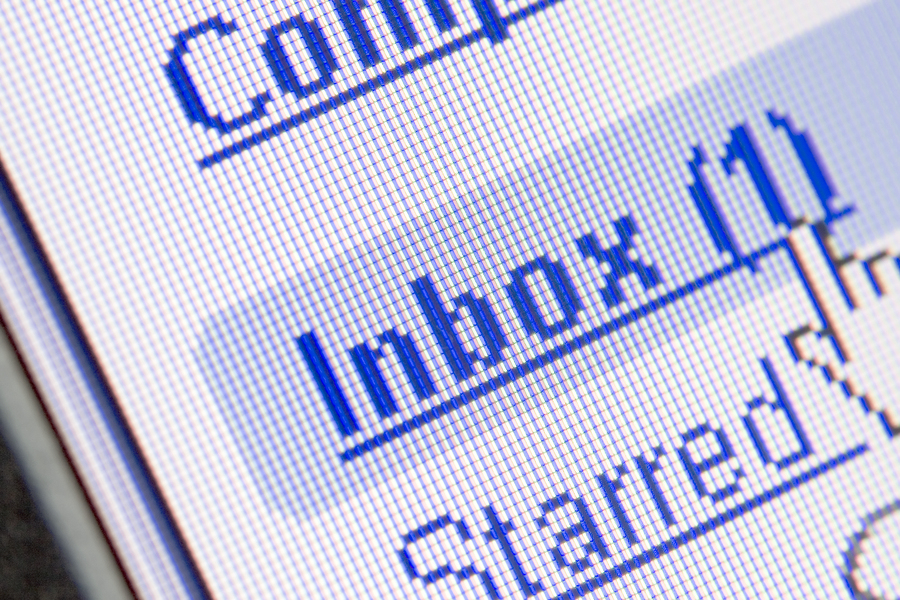In the last week, I have received hundreds of business emails from multiple sources, including colleagues, clients, prospects and vendors. Like the people who sent them, the emails come in a wide variety of styles and span a spectrum from well-written and professional to sloppy and eyebrow-raising.
Yes, You Should Proofread Your Emails, But That’s Not All
I have opened emails containing:
- All lower case letters
- Limited punctuation
- Emojis and smiley-face parentheses
- One-word responses
- No subject line
- A vague subject line
- A seemingly endless chain of mindless reply-all responses
- Missing attachments, and
- Typographical errors.
You may be thinking “so what? Who cares?” After all, spelling- and punctuation-challenged emails have become more commonplace and accepted in this frenzied and increasingly casual world and most people have better things to do with their time than moonlighting as the grammar police.
Still, when you’re a lawyer, it pays to clean up your emails so they are effective and professional. Clients, colleagues, opposing counsel and judges expect a high level of competence from you and part of that includes how you come across electronically. You don’t want to be doing fabulous legal work only to undo your reputation with sloppy, cringe-worthy emails.
But that’s not the only triage that your emails could use.
Your Emails Can Help Cement Relationships
Last year, I exchanged emails with Dave, a prospective client, to set up a time for an in-person meeting so we could decide whether it would make sense for us to work together. Dave’s emails were short, terse, pleasantry-free and exceedingly formal. I started to wonder whether he would turn out to be someone I would enjoy working with when he signed one of his emails “thank you for your courtesies,” which sounded like something out of a bygone era.
When I met Dave in person, I discovered that, while he is somewhat formal, he is pleasant and polite, cares deeply about his clients and those who report to him, and is modest and self-effacing. Dave’s true character and personality were not coming through in his emails.
Operating in a global or national marketplace at warp speed means that you may never meet either face-to-face or even on the telephone many of the people with whom you are doing business. As a result, it takes more effort to develop and solidify relationships with those people – relationships that may lead to client business, job opportunities or simply help in greasing the wheels to get things accomplished.
Emails that are pleasant and even friendly and that allow your personality to shine through – in other words, that seem human – make you more attractive, accessible and likeable to those who receive them. Likeability matters because almost everyone is more likely to hire, refer or share opportunities with those they like and feel a connection with. If you are feeling pleased, collegial, excited, connected or enthusiastic, make sure that emotion is coming through.
How To Warm Up Your Emails
One of the downsides to electronic communication is that your intended tone can easily be lost without some concerted effort on your part to consciously inject it into the notes you send. Perhaps the most frequent disconnect is that the reader infers anger or frustration on your part where there isn’t any.
Try these 4 tips for helping to ensure that your tone doesn’t get lost.
Add Pleasantries. Starting and ending your notes with a short greeting or question doesn’t take much time and energy but it dramatically increases your genuine connection with the recipient because it demonstrates to the reader that you care and that you are interested in a business relationship, not just a business transaction. It could be something as simple as “I hope you had a great weekend,” “Sorry I missed you at the conference last month,” “I look forward to seeing you soon” or “Have a great vacation at the beach!”
Say Thank You. It’s simple, powerful and easy. Just do it. “Thanks so much for your hard work. It hasn’t gone unnoticed.” “Your time and talent on this matter have made all the difference. Thank you!”
Inject Tasteful Humor When Appropriate. Yes, you’re a professional. But that doesn’t mean you can’t have a little fun. Just leave out comments of questionable taste or those that target someone other than you or the person you’re sending it to. And don’t forget, your emails are probably discoverable – proceed with caution.
Sign Your Emails. Here’s another one that takes just a nanosecond but makes a difference in tone. Failure to include a signature can sometimes indicate that you are annoyed or just rushed and frazzled. Either way, it imparts the sense that responding is not worth your time or energy. Put just your name at the bottom of your emails if that’s all you can muster. An even better approach is to use a signoff such as sincerely, all the best, talk to you soon or thanks.
[widgets_on_pages id=”Opt-In for Blog Posts”]
